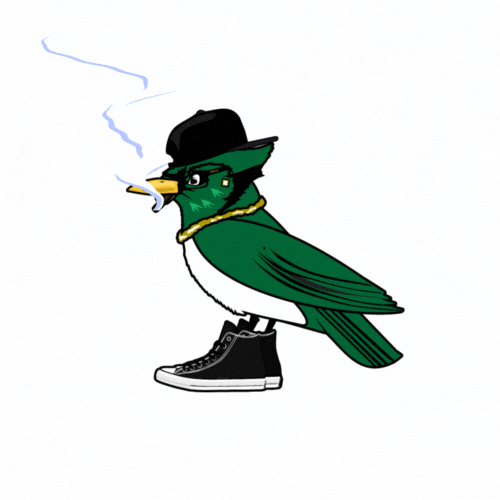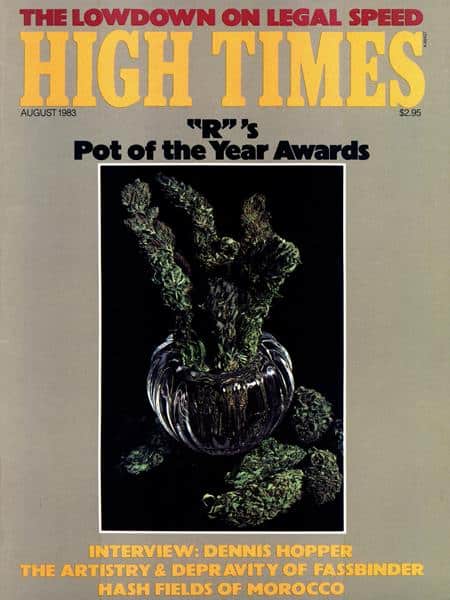[ad_1]
Rainer Werner Fassbinder was the central German film director of the whole post-Hitler era. He was the greatest in terms of productivity (43 films in barely over a decade), range and impact on his own generation—both in Germany and abroad. The “New German Cinema” revival of the ’70s is unthinkable without him, and among his contemporaries, only Werner Herzog (Fitzcarraldo, Aguirre) rivals him in world prestige. In films like The Merchant of Four Seasons, The Marriage of Maria Braun, Lili Marleen, and Lola—Fassbinder opened up a peculiar, teeming, madly fertile world: a world of bleak city streets; garish interiors rotting with an over-sumptuous hothouse glamour; middle-class eccentricities and madness; and an erotic, romantic frustration so intense that it seems to beat at the spectator in waves. There is something almost oppressive about his films—they repel as they fascinate. Taken together they present a full and often damning portrait of German society in the 20th century—its social realities and, perhaps more important, its cultural undertows, dreams and nightmares.
When I spoke to Dieter Schidor—a deceptively boyish-appearing actor and ex-academic, who produced Fassbinder’s last film (Querelle, taken from the Jean Genet novel) and directed The Wizard of Babylon (a documentary on the making of Querelle)—I expected an intimate glimpse of a driven artist. I didn’t expect the picture I got: an appalling portrait of a man who was, in many ways, self-destructive, cruel and even monstrous—a man who tyrannized his friends and coworkers mercilessly; who drove some of them (like actress Hanna Schygulla) literally into nervous breakdowns; who manipulated the system with consummate cynicism and cunning to finance his movies; whose appetites for sex, drugs, emotional violence or depravity were immense and uncontrollable; and whose personal life was a pathetic, even sordid, shambles (both his long-term homosexual lovers committed suicide).
Throughout the interview, Schidor—a lucid, extremely intelligent raconteur who obviously loved Fassbinder—would occasionally pull back, protest that I was “making” him reveal a catalog of horrors; but seconds later, with little prodding, he would recount some new atrocity, pry open some new festering wound. It seems obvious that Fassbinder’s friends and associates may feel almost compelled to strip the veils from his monument. And they perhaps do this, not out of any sense of revenge or account-settling, but, in some weird way, to bring this strong, volatile, “monstrous”—but very human—figure back to life.
Schidor was open and honest, eloquent beyond any interviewer’s dreams and his remarks and stories speak for themselves. They show Fassbinder, I think, for what he probably was: a great artist and a pitiable, amoral man. They show a person who could be, sometimes almost simultaneously, violent and gentle, revolutionary and bourgeois, passionate and calculating, vicious and humane, idealistic and corrupt; an artist who, perhaps like Richard Wagner, bares the soul of his countrymen by reflecting in his art and his life all the grossness and the beauty, the idealism and the horror of Germany itself.
And in a peculiar way, these sometimes shocking revelations might be, along with his film work (which, in Querelle, reached its apex), a true monument to Fassbinder—who, as Schidor makes clear, would have wanted, even insisted on, that truth.
HIGH TIMES: How did you first meet Fassbinder?
DIETER SCHIDOR: I got to know him in 1969: He had just done his first two films: Katzelmacher and Love Is Colder than Death. And then I acted in a couple of his films—and then, in 1975, we had a fight; for a couple of years we didn’t speak to each other anymore—
HIGH TIMES: An artistic fight?
SCHIDOR: No, it was a mixture… It was a personal fight. We had done a film, Satan’s Brew, and I couldn’t come back for the second shooting. And then it happened (through Querelle, actually) that we started talking again. In the course of working on Querelle, we got very close.
HIGH TIMES: What was he like?
SCHIDOR: That is a very, very difficult question. I’ll try and tell it to you from my point of view. It is a question that I get often asked, and I try to be as concrete as possible—because, for me, he’s the most important person that I’ve met in my life, and will meet. You probably know that he could be very cynical, that he could be very wicked, and that he could be very unjust to people.
Everything he did, he did it in excess. He smoked in excess, he drank in excess; he took drugs in excess; he took sleeping pills in excess; and he ate in excess.
To stay on the negative side for a moment, he… he destroyed people. He did that, he really did. Not that he was guilty in the suicide of his one lover, and the hanging of another, but he felt guilty, and it was certainly something to do with him, you know; because people changed when they were around him, totally. They fell totally under his spell. I also fell under his spell. And you let him do things to you that you wouldn’t let anybody else do. And people would ask, “Why, why, do you allow him to do that?” And there was never an answer; people who were not very close to him could never understand that. He had, in the beginning, girls that went into the street as prostitutes for him: actresses—
HIGH TIMES: To keep the theater group going?
SCHIDOR: Yeah, to get money, because he liked to drink cognac and champagne. There’s a very famous story— not a secret: He had a flat where he lived with two of his actresses, and he sent them out to fuck with pawnbrokers, with Turks and Greeks; and get twenty marks, thirty marks, for each fuck, and then bring it back to him.
And, at the same time—and this is the most important thing—to spend an evening with him was more fascinating than all the humiliations you could get. There was a hypnotical power that made him, for you, not only into an institution of artistic quality, but also— even though he was totally amoral— there could be moments when he would be of such tenderness, and you would feel he would be the only person in your life (more even than your mother) that would understand you, exactly, and you would trust him, completely. But then it would happen that, two weeks later, he would totally use that, you know—
HIGH TIMES: What was this fascination based on? The force of his personality?
SCHIDOR: Uh-huh. This power of his personality was there, before he ever became a director. He must have had this power when he was fifteen years old—
HIGH TIMES: What about the avant-garde theater troupe in Munich where he started out?
SCHIDOR: You see, there was nothing happening in Munich at the time, so the media caught up with them, and people started writing about them. Fassbinder had his first part as an actor there, and he had learned his lines, and he had forgotten them totally. So he was onstage, and he noticed that he couldn’t say the lines, so he just screamed; he changed it all, and made this fifteen-minute speech, and just kept screaming… He could react very quickly. And the media impact of the theater group—AntiTheater—got him the money for his first film.
See, what happened to him: when he’d done his first film, Love Is Colder than Death, and that went to the Berlin Film Festival, and it was smashed to pieces—the critics hated it; the people booed. Fassbinder wasn’t interested in that. He wasn’t interested in the booing, and he wasn’t interested in the person who came up and said he liked the film. He knew he was doing the right thing.
He had the ability to feel that there was an empty space in the German culture of that time, where he could totally place his feet. And he got money from the subsidies; government money, government grants. He was very good at using the whole system to his best advantage.
The industry was nonexistent; you can say that. German cinema, until he came, was really nonexistent.
HIGH TIMES: Was his success the catalyst for other people, like Wenders and Herzog?
SCHIDOR: Mmmm-hmmm. Oh, yeah—and they know that. He was the one who—always, up to his death—he was the one who just pushed up his elbows, and went, like a bulldozer. He didn’t care; and he broke it open, also, for all the others. As an example, when he did Third Generation, he was a very distinguished, famous film director already— and, because of the subject matter—terrorism—he didn’t get any money, he was rejected by all the government grants… The actors were already all in Berlin. He’d done already two days of shooting; and he realized there was no money whatsoever. He called the actors together and said, “That’s the situation. You can go home, now. But, if you stay, you won’t get paid.” And then some said yes; some said no—and he did the film. He sent people around to collect money—fifty marks here, a hundred marks there—and he did the film, the credits and finished it. He didn’t wait until he had the film totally financed— he just went ahead.
HIGH TIMES: What were his shooting schedules like?
SCHIDOR: Pietra Von Kant, nine days. Hardly any of the earlier films took more than two or three weeks.
HIGH TIMES: How was he able to do this?
SCHIDOR: For a long period of time he had the same people. So that was time-saving.
HIGH TIMES: When he started, was he working with crews that were all tyros?
SCHIDOR: Yeah, they were all starting out. Nobody knew anything. He was scared; he didn’t know anything, either. And he said he really knew a lot, finally, after the shooting of Berlin Alexanderplatz. So, that was certainly part of the reason why things worked so fast.
HIGH TIMES: What were the dynamics of his film group? Was he able to instill some sort of esprit de corps?
SCHIDOR: No. He was a tyrant. He was constantly playing with intrigues between the people. Mind games—all the time. If there would be relationships developing, he would destroy them; or he would start new ones. You know, there was a constant energy that was flowing. People would be humiliated. He would pick on somebody—
HIGH TIMES: Were many of them afraid of him?
SCHIDOR: Yes. Yes. And he would interfere totally with their private lives.
There was a group of actors that were very close privately, also. His “stock company”: Hanna Schygulla or Günther Kaufmann, Kurt Raab, Harry Baer.
Hanna was supposed to play “Lola.” She was at a party at the last day of shooting on Lili Marleen—she had started practicing the songs for Lola already. He told her, “You’re not going to play ‘Lola’.” And she had a nervous breakdown … She really broke up, you know.
HIGH TIMES: She was his biggest star! Did he feel she had to be taken down a peg?
SCHIDOR: No. After having done a film like Lili Marleen, his fantasy for her was a bit exhausted. He needed a break. That happened after Effi Brest also. He sent her away. He said, “I can’t see your face anymore.” Then, after Effi Brest, the first thing he did again with her was The Marriage of Maria Braun—which he really did because he had treated her so horribly in the meantime: didn’t answer phone calls, and never called her back.
HIGH TIMES: You’re depicting a very cruel individual. Why was he doing this? For the good of the project?
SCHIDOR: I don’t think there was any analysis in what he was doing. He loved playing these games. And he loved intrigues. And he was very childish. And it was very cruel. But then, all these people that he was cruel to, and he was humiliating—they loved him.
HIGH TIMES: He pulled them up?
SCHIDOR: He pulled them up, yeah. He really pulled them up. And… I would more than say we were friends; I would say that I—I loved him; which mostly I noticed after he was dead, because… Now there is something missing which… I know I will never meet somebody like that again who will open up things in my head, that nobody else has done before.
I realize I’m not being very precise. You see, it’s very, very difficult. Don’t pick on the… When I say all these negative things, you can create a character, and you can say, “Oh, he was horrible.” There was a lot of cynicism and dangerous game-playing. It’s all true, you know, and that was all there. And I’ve seen him do things that were really unbelievable—like hitting people; or, the cutter of Querelle—he came into the cutting room once, because she had made a remark; and he hit her with his leather jacket, and she had a big wound over her face. And then he didn’t speak to her for four weeks. And then he would come and bring her big presents, you know. Or, we would have a fight, and then he would suddenly call up in the middle of the night and say, “Can we go for a walk?” Very sweet and tender, and you would forgive everything.
HIGH TIMES: He sounds like a person who lets everything out.
SCHIDOR: Everything. Then, he was completely free.
HIGH TIMES: Isn’t that unusual for German society?
SCHIDOR: No, it’s very unusual. He was hated by many, many people—especially in Germany… In the media, he was always loved. He established his place very fast. But with the public— with his TV things, he irritated people a lot. Then there was his appearance: his leather jacket, and torn jeans, and unshaven—that was unusual. Or that he would sit in press conferences, and not be polite. He was never polite. And, at the same time—it’s very complex—with his scruffy dress; it was a false front. He knew that it was effective.
HIGH TIMES: Another interesting thing about his films is their immense catholicity of tastes and interests.
SCHIDOR: He could soak a lot of things up without being totally involved. It’s not that he knew a lot about the Third Reich, for example, but if there were certain aspects that interested him, then he would, very fast, learn what he wanted to know. It was not that he read a lot, you know—he read the books that he wanted to read. Alfred Döblin, a German philosopher—he’s one of our classics. And Querelle was one of his favorite books. And Schopenhauer…
So, in his bedroom, you would find—with the porno magazines—you would find all of Schopenhauer.
HIGH TIMES: He also had a real flair for cinematic mimicry—
SCHIDOR: He had a couple of directors that he knew every film—and one was Douglas Sirk. You can see his influence, especially in Lola and Fear Eats the Soul. Then there were the Michael Curtiz movies—Fassbinder was going to do a book on Curtiz.
HIGH TIMES: How did he work with actors?
SCHIDOR: He would never say, “You were good.” Only if something was bad; he would say, “Okay, you have to do that again.” His presence was such that, he made the actor feel—He was very tender; don’t forget that. During shooting, he created an atmosphere of incredible tenderness. Or; if he thought it was needed, he could create an atmosphere of total horror—of really beating, with words and cynicism, the shit out of an actor, to get the performance he wanted.
HIGH TIMES: Fassbinder seemed to have found his financial touch in the last four years.
SCHIDOR: But, see, what he did, if you look back, the first films that he’d done—including The Merchant of Four Seasons—were films really treating problems of lower-working-class people, films that the regular cinema audience were not interested in. He changed… He changed, and got his audience’s attention—wider public attention—when he brought in normal middle-class bourgeois subjects.
HIGH TIMES: Why was he working with working-class subjects in the beginning, if that wasn’t actually his background?
SCHIDOR: It was not his background, but… When he was living in Cologne, when he was sixteen, seventeen, and he could do what he wanted, he was running around areas where workers were: you know, gay bars. So he was always with that type of people a lot—he liked them. Also, during the shooting of a film, he wouldn’t sit with the staff; he would sit with the lighting people, the electricians. He felt more comfortable there. So that was part of his own personality: he felt very close to them.
HIGH TIMES: Could you talk about the circumstances surrounding the suicide of his lover and his own drug overdose and death? Unless it’s too private—
SCHIDOR: No, no. There’s no reason not to do it, because one thing that Fassbinder was always very, very strong about—he always felt that everything private can be made public. There’s no reason not to make anything public.
His lover [Armin Maier] was one of these boys that were created in the last year, 1945, in the Action Lebensborn—you know, where the Nazi party put blond men and blond German women together into places—
HIGH TIMES: Breeding grounds?
SCHIDOR: Yeah, breeding grounds… They were living together, I think, for five years. He grew up an orphan, and he was adopted by a butcher, in north Bavaria; then came to Munich, and he served as a waiter in a restaurant where we all used to go. And they became lovers, and they moved into one apartment. And then … Fassbinder had written him a letter—(it didn’t work out anymore. He told me that. He said, “The only time when we can understand each other is when we take LSD. That’s the only moment when we can communicate”). It was getting worse and worse between them. Fassbinder had written him a letter that it was all finished.
Then, you must know that the lover has acted in a couple of his films— Germany in Autumn and Mother Küsters Goes to Heaven. He introduced him like James Dean in that film: “For the first time on the screen—Armin Maier.” Armin was running around with that letter (Rainer was in Cannes at the time) and showing it to people—because he didn’t understand. It was a very intellectual letter—and then Armin took an overdose of sleeping pills and was found a couple of days later by Fassbinder’s mother, in their flat. Fassbinder got a real shock out of it; he felt very guilty. And many people blamed him for that—which I believe is wrong. What had happened, of course, the lover had changed a lot. You know, if you live with a very strong personality—he had started copying Fassbinder’s gestures, Fassbinder’s way of speech. And he had lost, sort of, his own identity…
And the other lover… You know Ali: Fear Eats the Soul? Remember the Arab guy in it? [El Hedi Ben Salem] He hanged himself in a prison in Marseilles. It was after Fear Eats the Soul, which Fassbinder gave to him as a sort of “goodbye” present. They had been living together a couple of years, also. They even brought up a son from Morocco, the son of Salem, because Fassbinder thought he wanted to start a family—
HIGH TIMES: Was Salem an actor to begin with?
SCHIDOR: No, he was somebody who was working in Paris, hustling in Paris, doing all sorts of things. He had a family with six children in Morocco; and then he met Fassbinder and they lived together in Munich. And then they went down to Morocco and found the family, and took one eight-year-old son up to Germany. And that became impossible, you know—because Fassbinder didn’t take care of the son. The father beat the shit out of the son whenever he got it from Fassbinder. And then the son was given to the girls, you know, to take care of him, and send him to school. And sometimes he was forgotten; forgotten in a flat, and couldn’t get out for three days.
Then, after Fear Eats the Soul, they were in Berlin, and they had a fight again, and Salem went out, and he was drunk—he drank a lot—and he stabbed somebody—
HIGH TIMES: And killed them?
SCHIDOR: No, he didn’t kill them—but he stabbed somebody in a bar. People got money together, and they sent him off to Paris. And that was the end, you know. He was running around in Paris and saying, “I’m the one. Me, fucking with Fassbinder. Me, star from Fear Eats the Soul.” In Paris he was invited to a couple of parties, and then, some months later, he was caught… I don’t know what he had done—stolen something. And he hanged himself in prison.
HIGH TIMES: Did Fassbinder express any inner torment over all of this?
SCHIDOR: Yeah, sure. He didn’t express it outwardly… There was one situation—it was after Querelle, I think —and he had these wonderful dinner parties, Fassbinder. He had this flat in Munich, and he absolutely adored caviar—he would spend thousands of marks on caviar every month; and invite people, and everybody would get a big piece of caviar. He would spend money like mad, buying presents. And then Kurt Raab (who played the lead in The Stationmaster’s Wife and Satan’s Brew, and was the art director on many of the films) finally took care of this son that Fassbinder and the Arab guy had brought over from Algeria—and the son’s in prison now, also, because he got into drugs and drug-dealing. Fassbinder made a remark at that dinner: “Oh, Kurt, when you want to see your friends, you have to visit them in prison.” And then Kurt, who was already a little bit drunk, said: “Oh, Rainer, when you want to visit your friends, you have to go to the cemetery.” And Fassbinder looked—and it really goes like a knife into him. He really… He really suffered from that. He would never speak about it.
To come back to your first question: around that time of Armin’s death, he was really depressed, always. But, and I’m damned quite sure about it, it has nothing to do with Fassbinder dying.
HIGH TIMES: The suggestion wasn’t suicide, but that his recurring depressions would drive him to excesses—
SCHIDOR: Yeah. Don’t forget: if you say that it was an overdose—certainly, medically, at that moment when he died, it was an overdose—but he didn’t die by accident, through an overdose. He was physically, totally—run down.
It was a horrible thing for the insurance companies to get him to a doctor. He had the idea that he would be stronger than nature. He would sit there with his fat stomach, eating, drinking; smoking dope the whole time; taking really large amounts of cocaine; and then say, “I’m going to prove it. The energy I have is so strong, I cannot die. What would happen to the energy I have?” He said that to me at Cannes… You know, we all knew it. We knew it was not possible, what he was doing. It is really impossible—and he has to die. Everybody knew that, for many years. The excesses were so strong. And then, at one point, you just said, “Well, maybe he is right, maybe this is a miracle. Maybe he’s so strong that he gets away with it… “
HIGH TIMES: If he’d lived through it, do you think he would have changed? Or would he just have gone on to the end?
SCHIDOR: Probably. He started his self-destruction many, many years ago.
HIGH TIMES: Why?
SCHIDOR: One thing was… When he did not film, he did not know what to do with himself. He went on these erratic trips for three days to the Dominican Republic, or two days to New York—you know, spending huge amounts of money on first-class air tickets; taking somebody along; hating it after three days.
The last time I was in New York with him, and we were really alone the whole time, he did not… He went to the sauna one time, but the sex was nothing very positive. That was his last year, you know, the year of Querelle.
HIGH TIMES: So that’s why he kept up this furious activity?
SCHIDOR: Yeah, that’s why. I really was so shocked… I didn’t believe—I knew he was really run down, already, in New York; and then we went to Cannes for the film festival. And he wouldn’t go to bed before six o’clock. All the arrangements for the cocaine: there was all sorts of people spending huge amounts of money. And then he would get up at maybe nine or ten. And one night he stayed at my hotel at Cannes because the next morning, at nine o’clock, there was a reception of the German Export Union.
So, it was six o’clock in the morning, and he sent his assistant up to the pension to get his white suit to be able to go there; and he slept in my room. And we were reading to each other. And he was taking this very strong sleeping pill called Mandrax, which is like a Quaalude. So he was taking three Quaaludes, three Valium 10, and he was having all these very strong Bloody Marys that he ordered by room service at the same time. Then he said to me: ”See, if that doesn’t work in about fifteen minutes, I’m going to take the same amount again.”… So, fifteen minutes later, he took three again, and three Valium 10 again. And in between, don’t forget, he always had lines of cocaine. So then he said—very proud, like a little child, very proud: “If you would take that, you would be dead already.” But proud, you know—
HIGH TIMES: Did he indulge in anything else?
SCHIDOR: LSD, but not so much. Once in a while—twice a month, three times a month.
HIGH TIMES: Would he use these on the set?
SCHIDOR: LSD, no. Cocaine… Fassbinder wouldn’t do hallucinogenic drugs on the set, but he would do lots of alcohol—Jim Beam always—full glasses, beer glasses full of Jim Beam. He would finish two bottles of Jim Beam a day, during shooting. He would never be drunk; I’ve never seen him drunk… And there would always be marijuana or hash that he would smoke on the set.
HIGH TIMES: Did anyone ever go to him and say, “Look, you’re killing yourself”?
SCHIDOR: Yeah, but then you have to know, to try and talk to him and say, “Listen, Rainer, you know what you’re doing to your body is… Come on, now; you have time now, four weeks—go to the Swiss clinic. It’s wonderful; we’ll come with you…” All this we talked about constantly, that we have to do that—And after his death, of course, there came this guilt thing. Ingrid Caven, who was his wife, was a very good friend of mine, told me that… Don’t forget, he was a real little bourgeois, also. When they were living in this house, and Ingrid Caven came in and he liked her, he asked her to sleep with him. And she said, “I like this guy. I didn’t find him especially attractive— he’s fat, and he has lots of pimples… But I went up to his flat. The weirdest thing was when I came down for breakfast … He had just moved in there, and there were about eight people sitting at the breakfast table in the kitchen; and Fassbinder had put on a suit, and he was sitting at the top of the table—and they were all waiting for me to come down. When I came down he allowed them to start breakfast; now, I was his property.”
Then they got married and he didn’t want her to work anymore. He said, “My wife doesn’t have to work.” And she said, “I was going crazy. What is this? What have I got myself into?” He was like a real—like a husband.
HIGH TIMES: It seems he’s got this strong bourgeois character matrix; and then, when he doesn’t hold on to that, he just spins out of control.
SCHIDOR: Totally. So he punished her for it… She wanted a divorce.
HIGH TIMES: It’s almost as if he’s punishing himself for being a bad boy—
SCHIDOR: All the time, all the time.
HIGH TIMES: What was his family life like?
SCHIDOR: His father was a doctor, and he built apartment houses which he rented to foreign workers from Greece and Turkey, where he put eight people in one room, and got lots of them—really exploited them. And Fassbinder, as a boy, was sent around to the flats to collect the money. And his mother was always sick, and she was translating; and he was given money to go to the cinema. He saw… Since he was six (he didn’t go to school much), he saw five films a day for years. Then he left home—he didn’t do his high-school graduation—and he applied to go to the Berlin Film Institute. He made his application, he made his test—and he failed it. They didn’t accept him.
HIGH TIMES: How old was he?
SCHIDOR: Eighteen. Then he started acting classes, when he was very young. He never heard anything from his parents, and only after his name was in the papers, suddenly his mother called him. And since then, he casts his mother also—his mother is in his films. It remained a very strong relationship… She was in Lili Marleen (as Mel Ferrer’s wife).
That’s the type of family he came from. He always accused her of trying to kill him. That was his pleasure—he would accuse her of giving him sour apples when he was a child, so he would eat the sour apples and die. And she would start crying and say, “Maybe I gave you once a sour apple, but I didn’t want to—” “Yes! You wanted to kill me!”
You know, I’m telling you… You make me tell you all these things…
HIGH TIMES: Listen, I admire Fassbinder’s films so much that it doesn’t—
SCHIDOR: That’s what I hope! I hope you get that straight, you know—
HIGH TIMES: It’s also sort of a corrective, you know, because I was so shocked at his death. It seemed such an immense loss…
SCHIDOR: It is! It is!
HIGH TIMES: … to have this torrent of creativity cut off when he was at his greatest…
SCHIDOR: Yes. You will see it in Querelle! He was at his greatest…
HIGH TIMES: … So, you’re not blackening his name—
SCHIDOR: No. That it is the last thing I would want, because I think he’s the greatest—not only film—I think he’s one of the greatest artists that Germany has had after the war. And for me, personally, he was the most lovable and exciting and haunting and despicable and wonderful person I have ever known in my life.
HIGH TIMES: If you have someone who doesn’t repress anything, who lets everything out, you get the bad as well as the good. No one has a pure soul…
SCHIDOR: Mmm-hmmm. I think you feel that—you see that in The Wizard. You see both sides in The Wizard. You see this incredible tenderness, and the great artist. And you see also the cynicism. And in Querelle, it is a big-budget movie—and, at the same time, it is like… this very private film… He didn’t film the novel; he made his own subjective meditation on Genet’s novel. When you see Querelle, you see that there is really somebody who—after the ”woman” films—started something totally new—
HIGH TIMES: So you think he was going through a great new period?
SCHIDOR: Yes.
HIGH TIMES: What, for you, were the high points of his career?
SCHIDOR: My favorite films are The Merchant of Four Seasons, In a Year of 13 Moons. I do like Satan’s Brew a lot. And Querelle. Those four.
HIGH TIMES: Could you talk about Querelle?
SCHIDOR: Well, I tell you one thing which I think is incredible about the film which has provoked a lot of scandal and irritation and aggressiveness—in Italy it is still forbidden—They wanted to have twenty-five minutes cut out of the film. There are three specific scenes they want to cut out. There are two sex scenes, where you don’t see anything, really. The provocation, the pornography, happens in the mind of the viewer (if you want it, it’s there). But Fassbinder did something… He did two very, very erotic scenes in Querelle, although you don’t see a cock or an ass, but everything is there. And those scenes they wanted to cut out—
HIGH TIMES: It would seem that the censors are distressed more at the mixture of sexuality and politics than explicit sex—
SCHIDOR: Yes, Querelle is a very political film. Without being anything openly political; but it’s political in the sense that… What Fassbinder wanted was certainly not a film about homosexuality. After Fox and His Friends he wasn’t really that interested in homosexuality.
HIGH TIMES: Well, Fox and His Friends isn’t really about homosexuality—
SCHIDOR: No, it’s about exploitation and power relationships among men. Okay—and in Querelle there is a strong homosexual aspect in the film that did not interest him in the least. What interested him in the film was—and he says that in the interview, very clearly—what he wanted to show is that if you want to be free and be happy, you have to find your own identity. So, to find your own identity, he believed, with Genet, this fact: that you have to invent yourself once more. And how better can you invent yourself once more than in a brother or in somebody that you love? In Querelle, the brother and the person that Querelle thinks he loves (and then, when he realizes that, he murders) are played by the same actor (Hanno Pöschl).
HIGH TIMES: It’s likely that Querelle will eventually become a cult film in the States—in fact, you might even pray for a few violent denunciations—
SCHIDOR: Yeah, yeah! At first I was really disturbed; now I like it when people get really: “Aaagh! This is horrible!” And you know what? Many gays hate the film.
HIGH TIMES: What was your relationship with him like during the shooting?
SCHIDOR: I’ll tell you an example and you can see. He had insisted that he get paid every day in cash. He loved cash; he hated checks. He got paid in cash every morning before shooting. He started shooting the film at eight—
HIGH TIMES: Did he always do this?
SCHIDOR: No, not on his own films that he produced. (And he had lots of money trouble.) So I had to give him, every morning, between six and seven thousand dollars in cash. And then there was a morning when I didn’t have the money. (We had money problems because the financing, when we started, was not totally set; I had only part of the money, but we had to start.) Then he said, “You know, I can lend you the money. I can give you thirty or forty thousand marks.”
HIGH TIMES: He wanted the ritual?
SCHIDOR: He wanted the ritual, yeah. And I must say, without him, the film would have been impossible. The financial problems were really so horrible.
HIGH TIMES: Is that generally a problem with German films?
SCHIDOR: No, with this film it was especially tough. We had an oral promise from the Berlin government that they would give a grant of five hundred thousand dollars. And then the Christian Democratic Government—they thought they could make a profile in front of their Conservative-party base and say, “We are not going to support this dirty movie, even though it’s Fassbinder.” He had just gotten the Golden Bear in Berlin for Veronika Voss. And then it became a total political situation: the Liberal party then fought against the Christian Democrats. They were a coalition, and they threatened to break up the government.
HIGH TIMES: Over Querelle?
SCHIDOR: Over Querelle. It was a question that was raised in the Berlin senate. Fassbinder had to sign things that he would make the film so eighteen and sixteen-year-olds could go to see it—that he would not do any explicit sex. He signed everything, he didn’t give a shit. And then once they called him up and said, “We don’t believe that this is his signature.” And I was sitting in his room. I said, “Rainer, they don’t believe that you signed this thing: that you were going to do the film for sixteen-year-olds.” He took the receiver and he screamed at the director for Economic Relations at the senate: “I’m coming over there with my passport to prove to you that it’s my signature!”
You know, he did all these things to make the movie possible. We got rejected from most of government grants. It was privately financed and it had cost over two and a half million dollars—which, for a German film, is a lot of money… Nobody gets normal salaries: neither Brad Davis nor Jeanne Moureau nor Franco Nero… And also, for The Wizard, he helped me.
HIGH TIMES: Do you think there’s any chance that the same kind of unfortunate thing will happen that happened to Fitzcarraldo and Burden of Dreams: that critics will say the documentary is superior to its subject?
SCHIDOR: That happened with The Wizard also. People have called me and said, “I like the film much better than Querelle“—which is a stupid thing to say. These are people that can’t do anything with Querelle… You can’t compare the two things. What is nice about The Wizard is the Fassbinder interview; but I had a lot of problems with his mother. She wanted me to cut it.
HIGH TIMES: Why?
SCHIDOR: I don’t know, it was a combination of reasons. First of all, he had just died. He looks… In the last months of his life, he was not very attractive in the normal sense. I never thought Fassbinder was ugly, because he had these wonderful eyes, you know—these eyes that made up for everything. It was never… “ugliness” is the wrong word to describe it. But he was not attractive in the normal sense like a mother would like to see her son. Then the mother has had this horror, and she has decided that, now, after the death, “My son was never a homosexual.”
HIGH TIMES: She’s decided that it’s some huge lie?
SCHIDOR: Yeah—It’s a typical “mother” thing to try to put her son—to “rebourgeois” him. And I try to explain to her—I said, “You’re doing the wrong thing. You are trying to put Rainer on a pure pedestal. He doesn’t belong there. You make him smaller in doing that. Don’t you understand that if you don’t leave this big mountain that he was, you know—this big, powerful mountain—all the facets a personality can have… That is part of the greatness of him. And if you try to smooth him out into a bourgeois person that actually wanted nothing more than having a happy life with children, then you’re destroying your own son.”
HIGH TIMES: How did the rest of his “company” react to his death?
SCHIDOR: Total shock. Shock and… a mixture of shock and relief. Which might seem strange to you. When I say “relief,” I don’t mean they were not sad, but a burden was taken off their backs at the same time that there was a very, very big loss…
HIGH TIMES: What did he think of his German contemporaries?
SCHIDOR: Fassbinder? He didn’t have any contact with anyone. I asked him that in the interview, and he had a very good answer. He looks. And he smiles: “We’re all good friends. All friends.”
HIGH TIMES: It’s interesting—Herzog and Fassbinder are sort of the antithesis of each other.
SCHIDOR: Yeah, Fitzcarraldo and Querelle, both films about ships. You know, there’s a funny scene, when Fassbinder and I were at Cannes, and Fitzcarraldo was in official competition. And at the night of the film we were just walking on the street by the beach near the Hotel Carlton. We were going across by the hotel and we see maybe thirty, forty photographers walking backwards; and then Werner Herzog in a black suit, and Claudia Cardinale coming over to the screening. And Fassbinder and I were standing in the middle, by some palm trees… They were passing us, and he was out of his mind. He kept… The first thing he’d tell me, “You should have seen them in Venice! There were at least three times as many photographers! What a ridiculous thing, to go to a film about a ship. It’s enough to make you sick…” And really going on and on, really furious that Herzog got all this attention.
They hardly said “Hello” to each other, you know. Herzog would come—we were sitting in a bar—and Herzog would come in. They would sort of look, and look away: Herzog and Fassbinder. There was no relationship at all.
HIGH TIMES: It’s too bad—they’re both great directors.
SCHIDOR: Yes… Fassbinder thought so, too.
HIGH TIMES: I understand you know Leni Riefenstahl. What is she like?
SCHIDOR: For a year we have been in contact—through Querelle, by the way. Fassbinder and I wanted her to do the still photography on Querelle, and she wanted to do it, also. And then she couldn’t, because she had a contract to film sharks underwater. And then Fassbinder died; and she wrote a wonderful letter. She admired him a lot; she loved his films. And then about three weeks ago I went to see her for the first time. I came to the house on the south of Munich. I expected an old woman—she’s eighty. And there was this creature running down the stairs like a teenaged girl. Of course, she had the old face, but there was a vitality.
That Sunday afternoon that I was there… She’s very old; you know, old people—they lose barriers. Something happens, I think it’s a chemical reaction. They become… They talk freely about sex, and they talk freely about things they wouldn’t normally mention. And she said, “You know, what Susan Sontag writes about me—that I always portray the athletes as gods because I keep shooting from low angles? You know what the reason was? In the Olympic stadium, in 1936, the walls were covered with German cognac advertisements; and I didn’t want that on the picture—so I had to put the cameras into the ground and shoot up. That was the only way to avoid them!”
HIGH TIMES: How does Riefenstahl look on the Nazi period?
SCHIDOR: Well, I tell you one thing. She said, “Schidor, I tell you—I said this to Albert Speer after his book came out. You know, I like Albert, and I said, ‘How could you write these stupid things? How could you portray it so negative?’ … As for me, I was under his spell. In March 1945, I would have had my hands cut off to get a smile from Hitler.” And she says that out, totally openly—
HIGH TIMES: How does she feel about Hitler now?
SCHIDOR: Oh, I think she’s changed. Don’t forget that that was the greatest time in her life. And he was the most fascinating person to her.
The older I get and the more I know about it, the more I keep asking my relatives and my parents and everybody I can get ahold of—the less explicable it becomes to me: this whole era of those twelve years. The thing that really troubles me—also when I speak to my parents, who come from a little village in Eastern Prussia—when I say, “Well, what did you think when Herr and Frau Lubenstein were not there anymore?” They say, “We don’t know…” And I say, “Well, didn’t you think it was strange that Jews were not allowed to sit on benches anymore?” The same with Leni Riefenstahl, when she goes on about, “I didn’t know anything about concentration camps…” Bullshit! That’s not the point: What was going on was going on since 1933. If there’s a sign that JEWS ARE NOT ALLOWED TO ENTER THIS BUS and Jews go and go and go and don’t come back, you don’t have to know about concentration camps.
HIGH TIMES: What’s inexplicable is that the whole humanistic German tradition of art and philosophy and music seems to have somehow evaporated during this period. Where did it go? What happened?
SCHIDOR: Where did it go? Right. Good question.
Read the full issue here.
[ad_2]












Leave a Reply